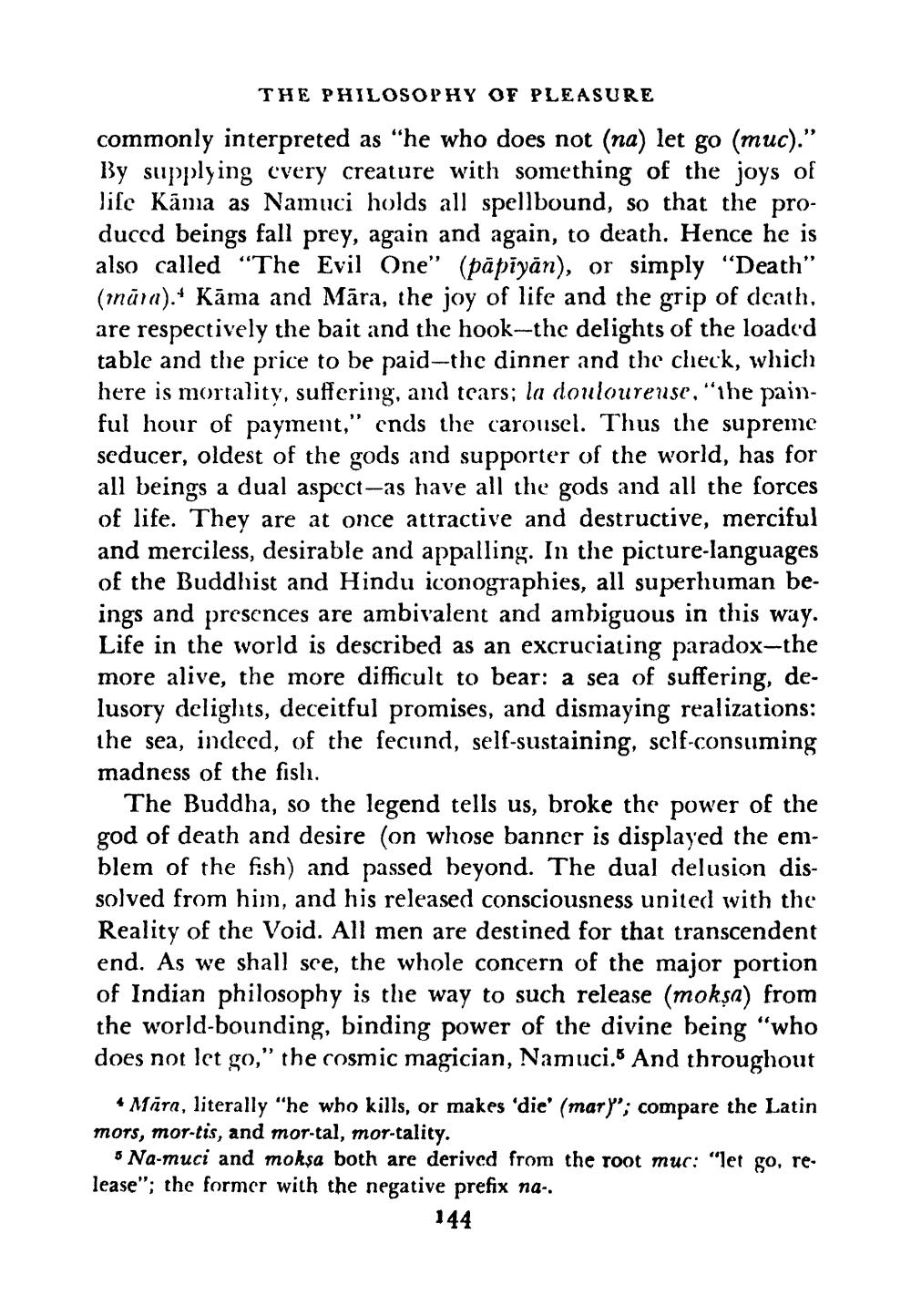________________
THE PHILOSOPHY OF PLEASURE commonly interpreted as "he who does not (na) let go (muc).” By supplying every creature with something of the joys of lise Kāma as Namuci holds all spellbound, so that the produced beings fall prey, again and again, to death. Hence he is also called “The Evil One" (pāpīyān), or simply “Death" (ināra). Kāma and Māra, the joy of life and the grip of death, are respectively the bait and the hook-the delights of the loaded table and the price to be paid-the dinner and the check, which here is mortality, suffering, and tears; la douloureuse, "the painful hour of payment," ends the carousel. Thus the supreme seducer, oldest of the gods and supporter of the world, has for all beings a dual aspect--as have all the gods and all the forces of life. They are at once attractive and destructive, merciful and merciless, desirable and appalling. In the picture-languages of the Buddhist and Hindu iconographies, all superhuman beings and presences are ambivalent and ambiguous in this way. Life in the world is described as an excruciating paradox-the more alive, the more difficult to bear: a sea of suffering, delusory delights, deceitful promises, and dismaying realizations: the sea, indeed, of the fecund, self-sustaining, self-consuming madness of the fishı.
The Buddha, so the legend tells us, broke the power of the god of death and desire (on whose banner is displayed the emblem of the fish) and passed beyond. The dual delusion dissolved from him, and his released consciousness united with the Reality of the Void. All men are destined for that transcendent end. As we shall see, the whole concern of the major portion of Indian philosophy is the way to such release (mokşa) from the world-bounding, binding power of the divine being "who does not let go," the cosmic magician, Namuci. And throughout
* Māra, literally "he who kills, or makes 'die' (mar)"'; compare the Latin mors, mor-tis, and mor-tal, mor-cality.
• Na-muci and moksa both are derived from the root muc: "let go, release"; the former with the negative prefix na..
144




